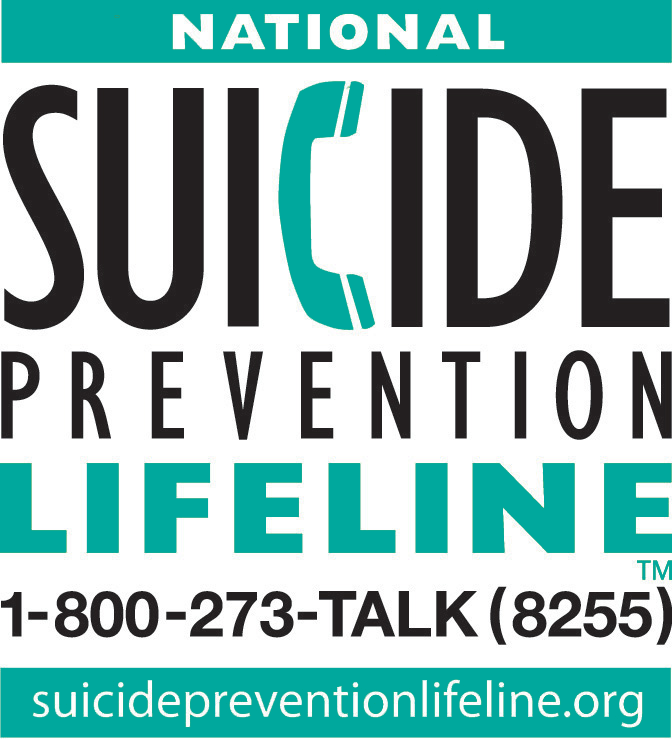  New Volunteer Counselor training starts soon! Three times a year, we seek to recruit caring individuals for training to become volunteer counselors in our crisis center. You don’t need any previous training. All you need is compassion and a willingness to help others. First step: Come to an informational session. We have three more for our Spring 2021 training group on: Tuesday, January 26th at 6:00 pm Wednesday, February 3rd at 6:00 pm Thursday, February 4th at 6:00 pm Information sessions give us a chance to meet you, virtually, at least, share a little about our training and schedule, and give you a chance to have your questions answered. Click here to learn more about volunteering and click here for the info session Zoom link via Facebook. You can also sign up for reminders.  KSPRC Trainings: There are multiple upcoming trainings available through the Kansas Suicide Prevention Resource Center program of KSPHQ. CALM for Providers February 12, 9:00am-11am Environmental safety measures are key in creating safety from suicide. In this session, mental health providers will increase their skills in assessing for access to lethal means, and joining with clients in how to plan for safety. Particular attention is paid to navigating firearm safety. QPR (Question, Persuade, Refer) February 25, 1:00pm-5:00pm Learn CPR for suicide risk. At the end of this session, participants will be competent in identifying someone at risk of suicide and helping to connect them to their next resource. Contact erica@ksphq.org with questions. The 2021 Kansas Prevention Advocacy Event is a virtual weeklong celebration of the prevention efforts happening across Kansas. By registering you will have access to advocacy training, peer meet ups, informative content, resources and opportunities to meet with legislators. Click the link below to join us as we work together to promote “Prevention for a Stronger Kansas”! KSPHQ will be hosting a Mental Health/Suicide Prevention drop-in session on January 26th from 1-2 PM and you’re invited to join us! #StrongerKansas Click here to register and check out our video below! |
January’s featured article: Coping with Prolonged Stress
by Ally Wilke

Feeling stressed out? Can’t seem to take enough bubble baths to make it better?
This month, we’d like to take a look at prolonged stress; how is it different and how we can cope.
There is no disputing that last year was a stressful one. The amount of stress that you can feel during a pandemic, an election year, the holiday season, a transition period, or anything similar can feel overwhelming and start to take a physical and mental toll.
Acute vs Chronic stress
There is a difference between short-term, or acute, stress and long-term, or chronic, stress. Acute stress can come from a variety of things but is usually more focused: test anxiety, a packed schedule for the day, or a tough family talk scheduled for later in the week.
Chronic stress can come from those factors, but is also highly influenced by outside sources, many that are not under our control. At a time in history where you might be watching or participating in protests just to see the same behavior continue, spending the majority of a year with little to no income due to a pandemic, or keeping up with an unprecedented election, stress can come from factors both inside our bubble and out of it.
You might feel like fighting stress is a constant, uphill battle. Stress is a chemical reaction that triggers the bodies’ “flight or fight response”, tells our brain to emit adrenaline, and begins unlocking fuel sources to have the energy necessary to deal with a stressful scenario.
Chronic stress does all that ALL THE TIME! Not only does the body get bad at recognizing acute stress situations (i.e. running from a bear, a sudden meeting with a boss), it gets used to having a high level of stress, thus making the threshold between “stressed” and “at rest” harder to achieve. Not to mention, burning fuel and being ready for anything are super tiring!
But just like the story of “The Little Boy Who Cried Wolf”, your body gets used to the prolonged stressful situation and eventually just starts getting tired, worn down, and numb.
That’s why in times of high or prolonged stress, overall fatigue goes up without physical or mental exertion. Stress is a real, genuine physical state that happens to our body. Just like you’ll be sore for a day or two after a hard workout, if your brain is constantly on edge and never has time or space to rest and recuperate, then you’re going to start getting physical and mental burnout.

Symptoms of prolonged/chronic stress can include:
Hair loss or lack of hair growth
Weight gain
Weight loss
Dull skin
Stomach pain or ulcers
Mental fog
Difficulty using the body for usual tasks/general body fatigue for general tasks i.e. – can’t find the energy to shower or shop for groceries
Easily irritable or triggered moods, or constantly feeling on the verge of tears
What can cause prolonged stress?
Global pandemic
Health scares and anxiety about your health
Upheaval in government
24/7 access to social media and news
Relationship/marriage/family stress & fighting
Financial struggles
Encountering frequent social injustices
Food insecurity
Dealing with long-term illness, yours or caring for someone else
How to take care of yourself during prolonged stress
The methods of self-care can differ when managing short-term vs long-term stress. Everyone has seen a cute graphic of ways to practice self-care; a bubble bath, curling up with a favorite book, re-watching a funny TV show that you love, or taking a short walk in the sunshine are all wonderful ways to get your body and brain out of a stressful situation and get a short break.
While those methods are perfect for acute stress, or “in the moment” stress, chronic or prolonged stress, by definition, does not end when the TV show is done. So our methods for managing the two stresses can and should be a bit different:
If possible, talk to your doctor and/or therapist
For more personalized or over-all health management
Find a trusted friend or family member to speak to or call KSPHQ (785-841-2345). Having a trusted person to talk to is a valuable thing. Often, speaking to someone outside of the situation can give us perspective or help us see solutions or coping mechanism we didn’t see before.
Calling KSPHQ is a safe, free, and confidential way to connect to a real person who cares and wants to help you speak about your stress. Our volunteer counselors are kind, compassionate people who want to help, and will be there when you need a listening ear.
Move or remove constant triggers of stress
This tip can be easy for some but not for others! Try to not scroll social media (a 24 hour source of stimulation!) right before bed, so set a bedtime timer or place the phone in a different room while you sleep. Or try to set clear boundaries for times/places that you will AND will not engage with stressful concepts or conversations with others.
Nourish your body with food
Food insecurity might make it so that fresh fruit and veggies are not always around, and that’s ok! Potato chips, a glass of milk, a piece of chocolate, a can of soup, or a cheese sandwich are all good, valid options for fueling your body and mind and recouping literal energy loss during or after stressful periods.
Hydrate!
It sounds like the most generic advice, but it’s some of the best! Water is hydrating for our entire body, but also contains electrolytes and minerals that our bodies need in order to work properly. The best way to hydrate your body is to drink what is available to you, even if it isn’t water.
Plan (and stick to!) “worry time”
Literally plan out times of the day where you allow yourself to worry, think about, write about, or vent about stressors. This can be “5 minutes, 5 times a day”, or 45 minutes at the end of the drive home from work. The trick is to not engage with those topics while outside of the designated time. This trains your brain to free up mental and emotional space for other topics, knowing that you have set aside time to focus on some that are more stressful, instead of feeling like you have to think about them all day.
How to have hope and look forward to a future
Unfortunately, stressful situations stick around for a lot longer than we’d like them to. Sometimes, things that we cannot control become major stressors, and we know that they will be with us for a while. Seeing a future with constant stress can be daunting, and it’s ok to feel frustrated, upset, or overwhelmed by chronic stress.
Knowing that there are real steps that you can take to manage stress is an important part of the journey. And knowing that there is always someone who is willing to listen on the other end of the phone can be a weight lifted off your shoulders.
KSPHQ’s call center is open 24 hours a day, 365 days a year. You can call the Lifeline or our direct crisis line and be connected to someone who cares about you, who wants to talk to you, and who can help you see some light when everything might feel overwhelming. You do not have to be suicidal in order to call either number. You can call for any reason–free and confidentially.
Having hope is an act of courage in a world where there are so many things out of our control. The crisis counselors at KSPHQ want to help you begin to rediscover your hope so that we can all feel more connected.



Kansas Suicide Prevention HQ
2110 Delaware St, Suite B
Lawrence, KS 66046
